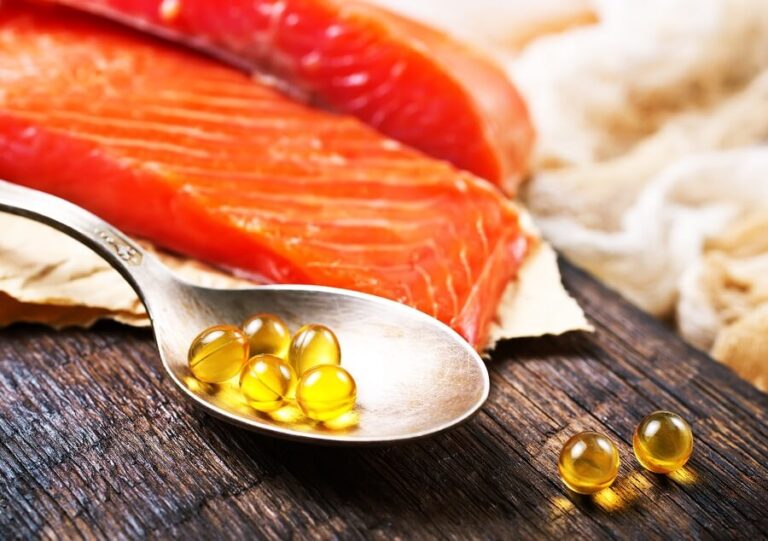Multivitamin complexes are one of the best-selling products of most pharmaceutical companies.
According to numerous advertisements, the consumption of multivitamins is one of the critical components of achieving a healthy lifestyle. While they can be helpful, they are not always necessary – they can even cause a condition called hypervitaminosis.
This article describes the effects of multivitamins and how and when to take these types of supplements. Are they fattening?
How to take multivitamins?
The first thing to assess before taking multivitamins is whether this is necessary. These should be taken when the amount of vitamins and minerals in food is insufficient.
Ideally, a doctor will determine when to take them through analysis. Otherwise, you are at risk of hypervitaminosis.
In practice, it can be said that it is recommended to take multivitamins together with meals. Or at the moment after eating. This is justified due to an increase in the absorption of vitamins in the digestion process.
How often to take multivitamins?
How often to take multivitamins is a dilemma that even American medicine and European doctors differ.
Americans are the most flexible with their vitamin intake. They recommend taking multivitamins even in prevention mode.
However, European doctors advise only taking multivitamins in exceptional cases. They recommend the consumption of synthetic vitamins with at least 2-3 months off. They also emphasize that a correct diet should not be necessary.
On the other hand, in the winter season, it is common to suffer from vitamin D deficiency. This affects several processes in the body, especially the immune and nervous systems. To achieve an adequate dose, you must stay in the sun for at least 60 minutes a week, which is more complex in the winter.
Comparative table of multivitamin complexes:
| Vitamin | Pharmaton (1) | Dayamineral gotas (2) | Supradin (3) | Recommended Daily Portion (4) |
| Vitamin A | 1500 UI | 5000 UI | 2600 UI | 5000 UI |
| Vitamin E | 10 mg | — | 12 mg | 10 mg |
| Vitamina C | 60 mg | 83 mg | 80 mg | 60 mg |
| Vitamin B1 | 2.0 mg | 2.5 mg | 1.1 mg | 1.4 mg |
| Vitamin B2 | 2.0 mg | 2.0 mg | 1.4 mg | 1.6 mg |
| Vitamin B6 | 1.0 mg | 0.8 mg | 1.4 mg | 2.0 mg |
| Vitamin B12 | 1.0 mg | — | 2.5 ug | 1.0 mg |
| Vitamin D | 6.0 mg | 10.0 mg | 5.0 mg | 5.0 mg |
| Iron | 10.0 mg | 3.3 mg | 14 mg | 14 mg |
| Football | 90.6 mg | — | 120 mg | 800 mg |
| Match | 70.6 mg | — | — | 800 mg |
| Fluorine | 0.2 mg | — | — | 0.2 mg |
| Copper | 1.0 mg | — | 1 mg | 1.5 mg |
| Potassium | 8.0 mg | — | — | 8.0 mg |
| Manganese | 1.0 mg | 1.0 mg | 2 mg | – |
| Magnesium | 10.0 mg | — | 80 mg | 300 mg |
| Zinc | 1.0 mg | 1.0 mg | 10 mg | 15 mg |
| Deanyl bitartrate | 26.0 mg | — | — | — |
| Others | 40.0 mg of Ginsengk | — | Coenzyme Q10 4.5 mg | — |
| Niacin | 15.0 mg | 16,7 mg | 16 mg | 18 mg |
What is the best multivitamin complex?
As a general rule, the first thing to pay attention to when choosing a good multivitamin is that it meets your body’s need for vitamins. The principle of “the more, the better” does not apply in these cases; It must be remembered that an excess of vitamins can be just as harmful as a lack of them.
As can be seen from the table, the compositions of the most well-known vitamin complexes have some differences. The objective of these supplements is, using a general sweep, to eliminate the lack of vitamins. Cover the absence of a specific vitamin in particular; This is what happens in most cases; it would be the best.
Claiming that one of them is better than another is not something that can be estimated with the naked eye.
To define which is the best multivitamin supplement, the best is:
- Do an analysis and see which vitamins are missing.
- Supplement according to the lack of personalized vitamins.
- Do not take multivitamins in excess to feel tired.
- Choosing products with extracts or compounds of natural origin tends to have fewer contraindications and better absorption of vitamins.
Currently, there are some innovative products, such as products based on blueberry extracts. 100g of the section is equivalent to 3.5 Kg of fresh blueberries. These supplements combine the properties of red berries, cranberries, blueberries, and cherries that contain flavonoids in addition to their high vitamin content.
Multivitamin supplements are not fattening
It is essential to remember that multivitamins do not contain calories, so they do not make you fat.
While taking vitamin complexes will not affect weight gain or loss, it should not be abused. In the US, many cases of vitamin poisoning have been registered. There are consequences in excess; the key: a balance must be found.
Taking vitamins will not make you fat, but you can have symptoms such as diarrhea, digestive disorders, hyperglycemia, and vomiting in case of excess vitamins. Even extra vitamin A is associated with an increased likelihood of some types of cancer, such as lung cancer. (5)
Multivitamin complexes – capsules or effervescent?
There are practically no differences between effervescent multivitamins, capsules, or vitamins in gel form. While the absorption rate of each type of multivitamin varies, more important is the origin of the complex and how you take it and accompany it with food.
It is important to remember that the body has a maximum absorption of vitamins per day. So ingesting large amounts of these in short periods will not mean any health benefits. It will simply eliminate them in the urine, or some cases; they will accumulate in the liver. Some vitamins are soluble in water and others in fat. Therefore, it is essential to include healthy fats in the diet for its correct transport.







